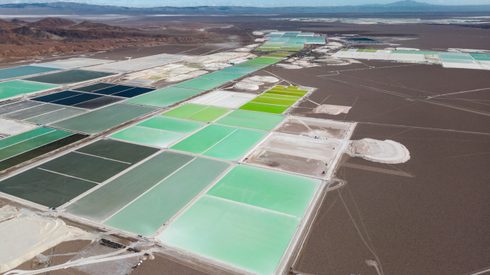Announcing the package on Thursday October 27, the DoE said the funding will be split among 16 projects, across 12 states, led by universities, national laboratories and the private sector.
Each project has the goal of developing commercially scalable technology that will enhance domestic supplies of critical minerals on a list managed by the United States Geological Survey and established by the Energy Act of 2020.
Domestic production of critical minerals is vital to meeting new electric vehicle (EV) battery production tax incentive thresholds set out in the Inflation Reduction Act, which includes a $7,500 tax credit for EVs that meet specific “critical minerals criteria.” To fully obtain this tax credit, by 2027 at least 80% of the lithium, cobalt, nickel, manganese and graphite used in EV battery production must be extracted and processed in the US or a country with which the US has a free-trade agreement.
Fastmarkets’ weekly price assessment for lithium carbonate 99.5% Li2CO3 min, battery grade, contract price ddp Europe and US was unchanged at $71.00-73.00 per kilogram, on October 26.
Fastmarkets’ assessment of the nickel briquette premium, delivered Midwest, US was 120-180 cents per lb on October 28, unchanged over the previous week.
Achieving the thresholds for obtaining the tax incentives is considered by many to be crucial to a successful EV transformation, sources told Fastmarkets.
And studies show that tax incentives are a major driver of consumer demand for EVs, because the cost of EVs mean that consumers are more likely to choose traditional internal combustion engine vehicles without the subsidies.
But market participants said the new thresholds are so high, in relation to current production capacity (both domestically and with free-trade partners), that achieving compliance will be difficult in the near term and could result in other countries reaping the economic benefits.
There are major unresolved questions as to how exactly supply chains will meet this challenge. Only a handful of current United States free trader partners have battery manufacturing capabilities or produce officially identified “critical minerals.”
The context highlights the importance of yesterday’s DoE announcement.
US energy secretary Jennifer Granholm said that “a reliable, sustainable domestic supply chain of critical materials that power longer-lasting batteries and other next-generation energy technologies is crucial to reaching our clean energy future.”
“With these [incentives the] DoE is helping to reinvigorate American manufacturing [by reducing] our over-reliance on adversarial nations and position the nation as a global leader of research and innovation,” she added.
To keep up to date with the latest news and insights in the battery materials market, visit our dedicated battery materials page.





